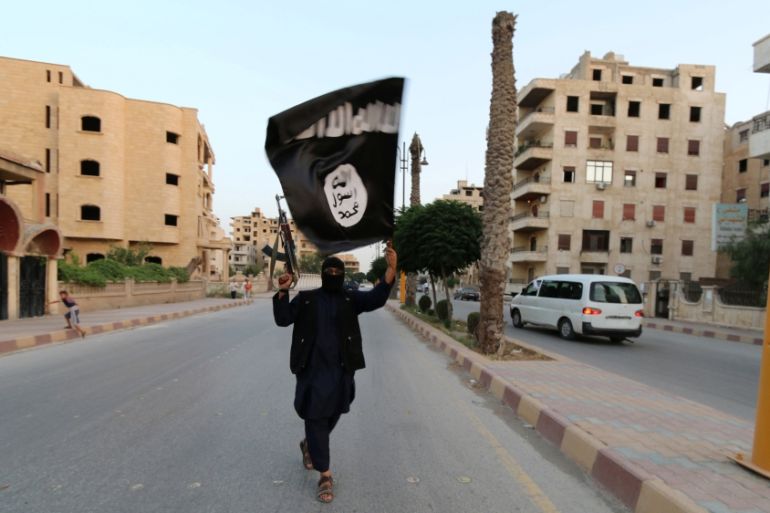Turkey captures ‘senior’ ISIL leader: Erdogan
‘Abu Zeyd’ was identified by a UN Security Council report published in July as ‘one of the senior executives’ of ISIL.

Turkish security forces have arrested a senior figure of ISIL (ISIS), President Recep Tayyip Erdogan said.
The commander, who is code-named Abu Zeyd, was captured in Turkey in an operation carried out by police and Turkey’s intelligence agency, Erdogan told journalists on his return from a three-nation tour to the Balkans on Thursday.
Keep reading
list of 3 itemsUS says it has killed ISIL leader in Syria
US woman accused of leading all-female ISIL unit pleads guilty
Abu Zeyd’s real name is Bashar Hattab Ghazal al-Sumaidai, and was identified by a United Nations Security Council report published in July as “one of the senior executives of the [ISIL] terrorist organisation”.
Turkish media have reported that al-Sumaidai may in fact be the man known as Abu Hasan al-Hashimi al-Qurashi – an Iraqi who is the new leader of the entire ISIL group.
However, Erdogan only referred to al-Sumaidai as a top ISIL official in Syria.
“In his interrogation, he also stated that he was a so-called ‘qadi’ [judge] of the so-called ministry of education and ministry of justice,” Turkish media quoted Erdogan as saying.
Erdogan did not say when the ISIL commander had been captured, but was quoted by Anadolu Agency as saying that the commander was transferred to judicial authorities in Turkey after his interrogation by police and intelligence personnel.
“This terrorist’s connections in Syria and Istanbul had been followed for a long time, and intelligence information was obtained that he would enter Turkey illegally,” Erdogan said.
After a meteoric rise in 2014 in Iraq and Syria that saw it conquer vast swaths of territory, ISIL collapsed under a wave of offensives.
It was defeated in Iraq in 2017 and in Syria two years later, but sleeper cells of the group still carry out attacks in both countries.
Syria’s war began in 2011 and has killed nearly half a million people and forced about half of the country’s pre-war population from their homes.